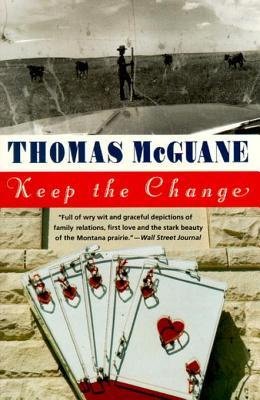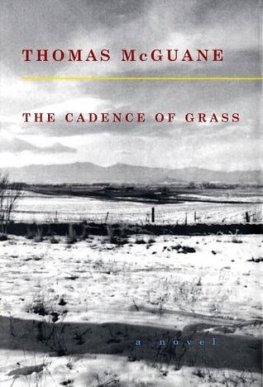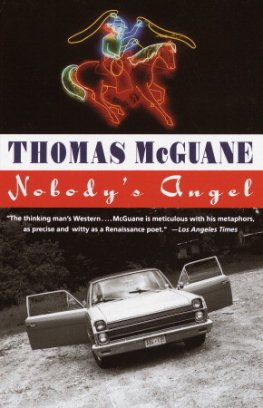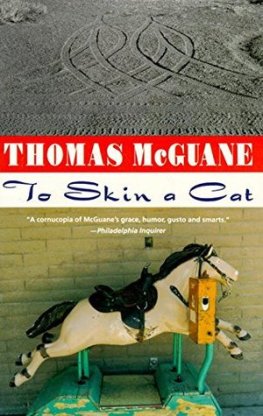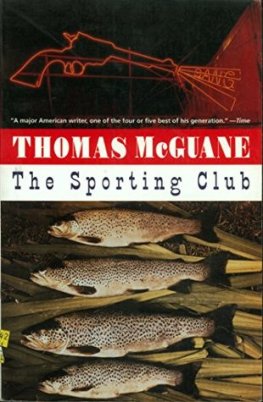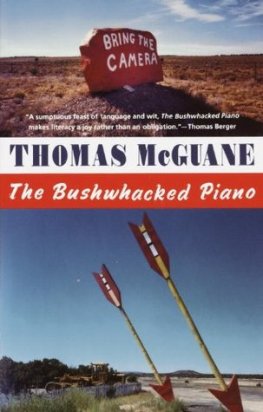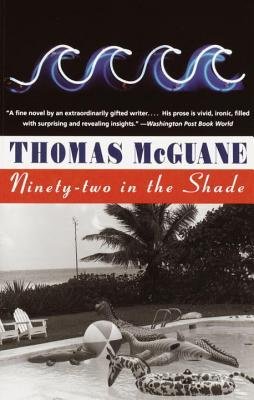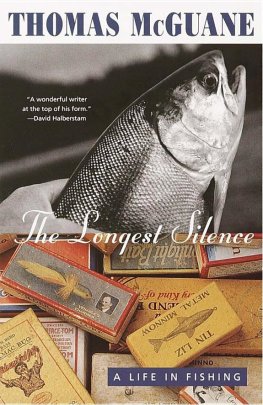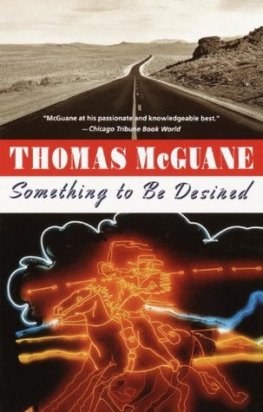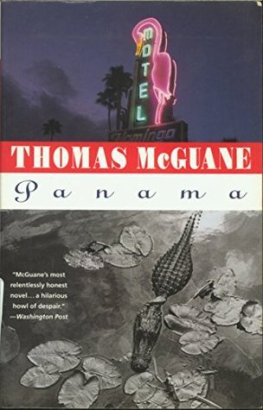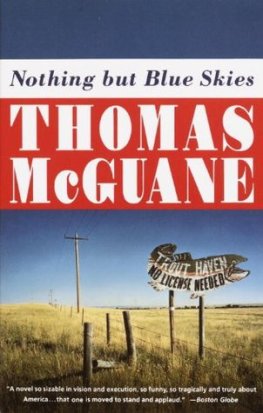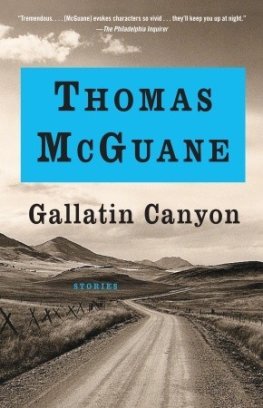Thomas Mcguane - Keep the Change
Here you can read online Thomas Mcguane - Keep the Change full text of the book (entire story) in english for free. Download pdf and epub, get meaning, cover and reviews about this ebook. year: 2013, publisher: Vintage, genre: Prose. Description of the work, (preface) as well as reviews are available. Best literature library LitArk.com created for fans of good reading and offers a wide selection of genres:
Romance novel
Science fiction
Adventure
Detective
Science
History
Home and family
Prose
Art
Politics
Computer
Non-fiction
Religion
Business
Children
Humor
Choose a favorite category and find really read worthwhile books. Enjoy immersion in the world of imagination, feel the emotions of the characters or learn something new for yourself, make an fascinating discovery.
- Book:Keep the Change
- Author:
- Publisher:Vintage
- Genre:
- Year:2013
- Rating:5 / 5
- Favourites:Add to favourites
- Your mark:
- 100
- 1
- 2
- 3
- 4
- 5
Keep the Change: summary, description and annotation
We offer to read an annotation, description, summary or preface (depends on what the author of the book "Keep the Change" wrote himself). If you haven't found the necessary information about the book — write in the comments, we will try to find it.
Keep the Change — read online for free the complete book (whole text) full work
Below is the text of the book, divided by pages. System saving the place of the last page read, allows you to conveniently read the book "Keep the Change" online for free, without having to search again every time where you left off. Put a bookmark, and you can go to the page where you finished reading at any time.
Font size:
Interval:
Bookmark:
Thomas Mcguane
Keep the Change
For Laurie
I photographed you with my Rolleiflex.
It showed your enormous ingratitude.
ANTONIO CARLOS JOBIM1
When Joe Starling was ten years old, his fathers bank foreclosed on a fieldstone mansion which was by then a depressing ruin standing by itself in the middle of a fourteen-section cattle pasture. It had been built during the silver rush to house the man who found the vein of ore, but now its mortared walls sheltered cattle against the prevailing west wind. Twenty years later, Joe could not remember much of the house beyond its size and age, and its air of having seen things. Once or twice while he was growing up, he drove over from his familys ranch. He recalled rumors of two old sisters who once lived there, nieces of the Silver King, whose poverty did not prevent them from seeming to have come from a higher caste than other people in the county. The sisters had not been long dead when Joe and his father first visited the house to view a painting that hung over the cavernous fireplace. It was a picture of a range of white hills. At first glance, it had looked like an unblemished canvas until the perplexity of shadows across its surface was seen to be part of the painting.
The picture had been made in the cold part of the year. It was supposed to have been painted long ago on the upper Missouri River. Joe believed that it was a picture of the hills by someone who feared he would never get out of them. But when he looked at the picture with his father, craning his neck to see up into the shadows, his father said, It must have faded. Theres nothing left.
Its still a beautiful picture, said Joe.
His father turned and smiled down at him. Yes, it is, his father said.
Joe had come to believe that he understood what the painter had intended and that it was still right there, perfectly clear. That it had faded only enlarged the force of its mystery. The two old sisters were buried in the yard in graves deep below the frost where coyotes could never reach them, and his father was now in a grave of his own on the edge of a suburban golf course in Minnesota where coyotes never ventured. Cattle had seized the mansion altogether for the purpose of escaping storms and drifting snow. It seemed even more important that a painting unseen by anything but bats hanging in the pine-smoked shadows of the big room disclose its meaning once and for all. When his own picture Chain-Smoking Blind Man had become known, only he was aware that its variegated white surface served against the canvas with a number-five putty knife was nothing more than his memory of the faded white hills on walls belonging to the long-dead Silver King and his spinster nieces. The feeling that he had invented nothing and that his career had begun with an undiscovered plagiary was disturbing. It was even more disturbing before he quit painting. Now that Joe was living little better than hand to mouth, the story of the plagiarism seemed part of a strangers biography.
Not long after the visit to the deserted house, Joes father had been transferred from his job as agricultural vice president of their local bank to a bigger job at the bank headquarters in Minneapolis. And it was there Joes folks lived forevermore or until they died, neither more nor less happy, but, it had to be admitted, closer to if not their dream, then their view of things. The ranch had been leased to the neighbors, the Overstreets, but the house was available to Joe and so was a summer job of cowboying under the neighbors foreman, Otis Rosewell, a tight-mouthed Baptist cowboy from Circle. This arrangement prevailed more or less successfully for a few years until Joe came home from his last year in military school in Kentucky, that is, came back to the ranch.
The lessees had but one obligation above and beyond an annual payment adjusted to the fall shipment of cattle, and that was to house up to four English pointers, the health and condition of which were guaranteed in writing by penalty clauses in the lease agreement. Retaining a sporting connection to the property enabled Joes father to make his annual inspection tours from the gentlemanly stance he now required. The dogs, kenneled for the bankers occasional appearances, generally ran wild, their noses polished off to pink by running in the brush year round and their legs black from excursions through the swamps. But Joes father was a superior dog handler and within a day or two of hunting in the fall, he usually had them hitched up once again, popping along, brightly under control, in search of prairie chickens. Joe remembered this wonderful string of dogs as his fathers great pride, especially Neuritis and Neuralgia, the liver and white Elhew males his father raised and broke. And he remembered the three family saddle horses, all geldings, whom Joes mother called Hart, Schaffner, and Marx because they lurked behind the shelter belt with an air of being in business together.
Joes father accompanied him on his trip back to the ranch. He wore his gray suit buttoned over his still muscular old cowboys physique and changed in the bunkhouse when they got there. Otis Rosewell accompanied them on their rounds. They started with the dogs and immediately Joes father found something to complain about. Otis tilted back on his undershot heels and took it in. When you see one drag its butt on the ground like that, it needs wormed, Otis. They dont do that as a party gag. You with me?
Its just having the time, said Otis in a cool voice and managing to tilt his head so that his hat brim threw a shadow across his already hard-to-read face.
They saddled some horses and started out across the irrigated ground. I presume your boss means to prove up like he ought to on this lease and that means maintaining the condition of my ranch, Joes father said. You cant have spurge and knapweed go on undisturbed like that if you mean to be on this place a long timeJoes father stopped his horse and was pointing an incriminating arm at the edges of an undulating hay meadowand one place your irrigator has leached all the nutrition out of the alfalfa leaving his water too long in one spot and another its burning up. Somebody ought to whip his ass.
Im the irrigator, said Otis Rosewell from under the brim.
Whos supposed to watch you?
Nobody dont.
Joes father jogged his horse right over next to Otis. If I was your boss, Id make it clear you were to bust your hump.
Im sure thats how you feel, Mr. Starling. But it was in poor shape when you had it to yourself.
Joes father didnt appear to hear him. In fact, he halfway seemed to be talking to himself, muttering away as they rode. but sometimes a man needs to be afoot to keep from going broke, get down and go to his tasks, instead of posing on the horse no matter how bad off and shameful the farm-ground is. He turned to Joe. This ranch is a monument to all Ive had to take and Im not letting anyone run it down.
Joe was startled at how well his father could speak bad English. He knew him best in his guise as a bank executive who, as a self-educated man, took pride in correct speech. In fact, as an agricultural executive, up from loan officer, he was able to create a useful gap between himself and his clients through the improved manner of his speaking. As Joe got older, he was able to read the disciplinary atmosphere by the type of language being directed at him. Buried in his fathers life was his original manner, identical to that of the farmers and ranchers who came to him with their hats in their hands. What they didnt know, he often said, couldnt hurt them. He was a coldblooded Westerner at heart.
When the three of them reached the end of the irrigated ground, Joes father excused Otis Rosewell; he literally said, You may be excused, and Rosewell started back. Joe and his father made their way up the hill toward the sprawling pastures that lay beyond the rims. They didnt speak for the first and toughest part of the climb. Joe rode along behind his father, who let his horse work his way up through the shale and tough footing on a loose rein. The older man sat straight as a string in his saddle, feet loose in his stirrups with floating grace. The two horses had their noses close to the steep ground in front of them while the big muscles in their rumps jumped and contracted with the struggle. When Joe and his father got over the top, they stopped to let the horses blow. The pastures stretched out in a folding world of grassy hills until they disappeared into the bluing of faraway sky.
Font size:
Interval:
Bookmark:
Similar books «Keep the Change»
Look at similar books to Keep the Change. We have selected literature similar in name and meaning in the hope of providing readers with more options to find new, interesting, not yet read works.
Discussion, reviews of the book Keep the Change and just readers' own opinions. Leave your comments, write what you think about the work, its meaning or the main characters. Specify what exactly you liked and what you didn't like, and why you think so.

